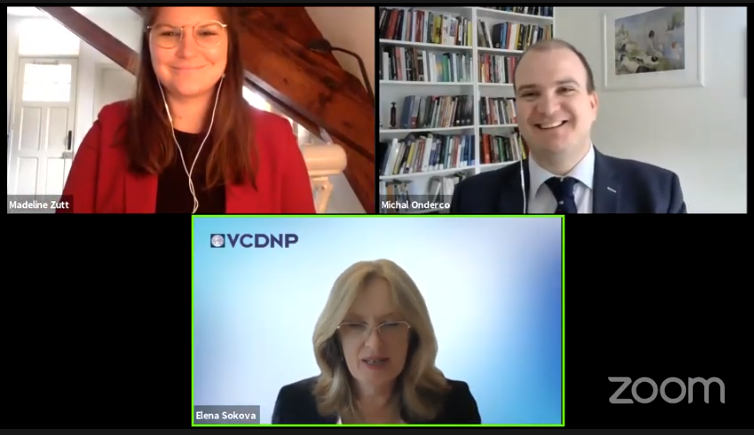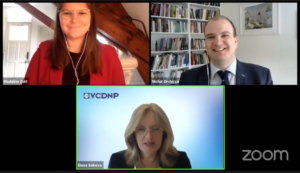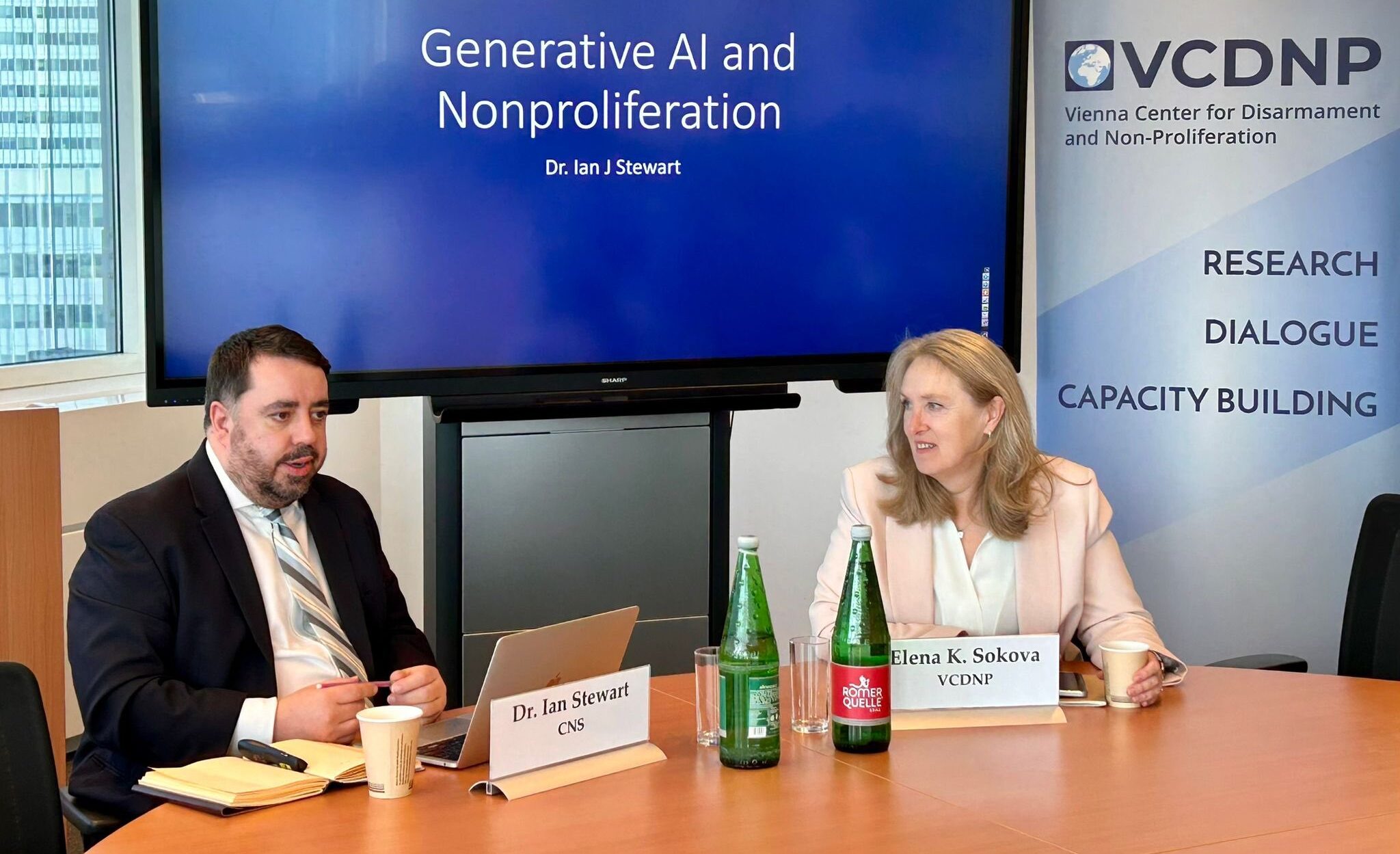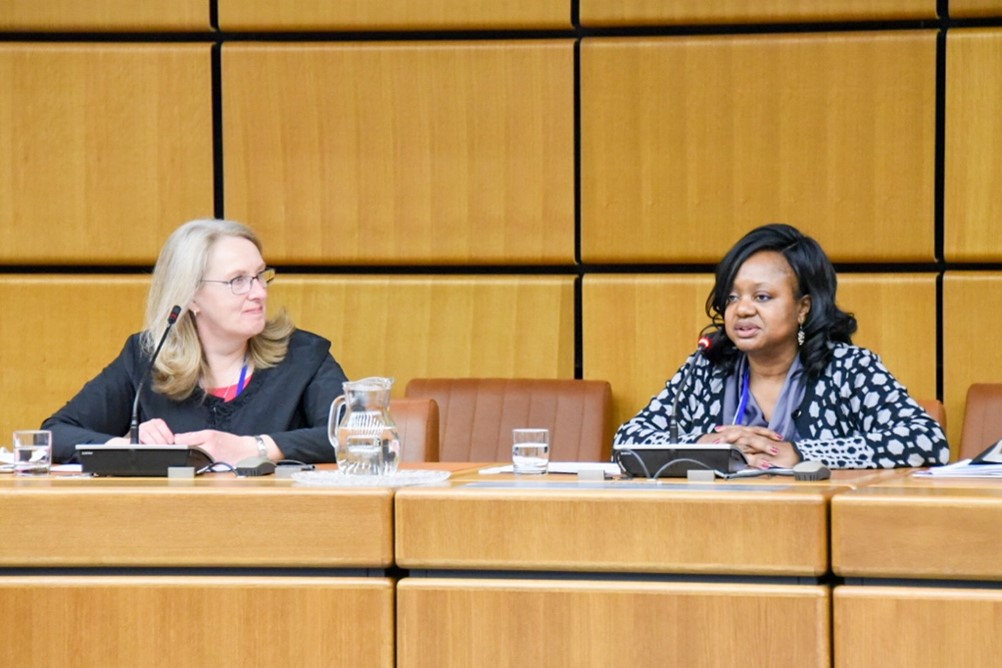

In recent years the world has witnessed rapid advances in cyber technologies and emergence of new ones, such as artificial intelligence (AI) and hypersonic weapons. These developments generate growing concern among experts and practitioners with respect to their impact on international security. On 6 October 2020, the VCDNP hosted Michal Onderco and Madeline Zutt, both from Erasmus University Rotterdam who presented their findings about the effects these technologies have on the nuclear domain, first of all on strategic and crisis stability as well as the risk of escalation. The webinar was moderated by VCDNP Executive Director Elena Sokova.
The speakers noted that emerging technologies can produce both challenges and opportunities depending on the context and how they are used, but challenges appear greater than benefits. They emphasized that these technologies can destabilize nuclear deterrence and strategic stability by introducing major uncertainties (especially where dual use capabilities are concerned), make signaling during crisis more difficult, and complicate arms control and disarmament efforts.
The presenters shared results of a survey of 427 nongovernmental experts and 14 members of policy elites in Europe to gauge the impact of the three emerging technologies on strategic and crisis stability. First, while the vast majority characterized all three technologies as destabilizing, hypersonic weapons were ranked as the most disruptive. Second, participants of the survey agreed that new capabilities are not likely to become an alternative to nuclear weapons. At least some of them – such as cyber – are not suited to achieve strategic outcomes; more broadly, new technologies, as a tool of deterrence, cannot complete with nuclear weapons in terms of sheer destructiveness. Third, the emergence of new technologies requires a more creative thinking about arms control because some of them will not be amenable to traditional tools. Pointing out that AI and cyber in particular cannot be subject to accounting in the same way as traditional weapons (hypersonic weapons can, however), the authors suggested that in the future it may be advisable to concentrate arms control efforts on actors’ behaviour and employ more broadly confidence building measures rather than continue to emphasize capabilities. They also noted that some new technologies allow new opportunities for arms control, for example AI and remote sensing could enhance the robustness of verification measures.

